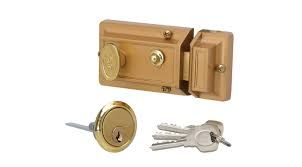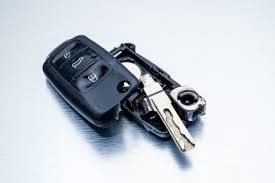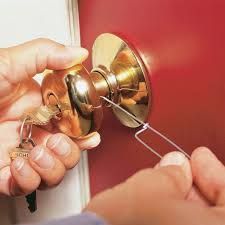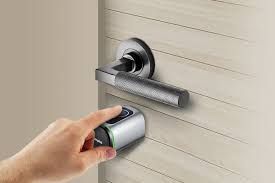What is a Smart Lock and Should You Be Considering to Get One?
Want to outsmart criminals? Or planning to upgrade your home locks to a high-tech factor? Then how about you consider purchasing a smart lock for your homes or offices. Smart locks are one of the best locks available in the market which provides you the benefit of both. It increases your home security alongside giving your homes/offices a modern aesthetic feel. These are the kind of locks that eliminates the hassles of carrying a physical key on you all the time. The locks are convenient & are quite easy to use. So with the technology market ever-evolving, if you want to protect your homes & families with the latest lock solutions, smart locks can be your one-stop-shop solution for all locking requirements.
What is a Smart Lock?
Smart locks eliminate the need for having an old-fashioned skeleton key to open up locks at your premises. They come with a locking mechanism and a virtual access key system for easy home access. Locks can be accessed by entering a code through an attached keypad or using a mobile app from your phone. Some smart locks are Bluetooth-powered and may require Bluetooth connectivity to access. From WiFi to Bluetooth, these lock types require virtual control for the locking/unlocking mechanism to work.
As far as the price of smart locks is concerned, these lock types may range from anywhere in between $100-$300. All of these lock types are electronic in nature and henceforth, they all run on batteries. They are attached to your door’s existing deadbolt. The ones which are retrofitted come with added features & better functionalities. The installation can be complex and may require expert intervention. But here’s the big question, are these locks the same as electronic locks or are they any different?
Are Smart Locks Different from Electronic Locks?
Smart Locks are also a type of electronic lock and require electronic circuits to function. However, the only difference between an electronic lock & a smart lock is that smart locks function through Bluetooth & WiFi connections. Whereas a traditional electronic lock does not contain any feature (even though they may require electronic keypad access or an access card) they won’t have the feature to function through a mobile app powered by Wi-Fi or Bluetooth connectivity.
While other traditional lock types function on skeletal keys, access cards, key fobs, etc. Smart Locks function wirelessly and only require a Wi-Fi connection or Bluetooth technology for connectivity. These lock types are effective as they can easily be controlled virtually from anywhere. Whether you’re at home or you’re at work, and someone in your family or friend plans to visit you and you can’t come to the door, you can always use a smart lock to access the door lock and let the person enter into your premises.
What are the Benefits of Getting a Smart Lock?
The benefits of getting a smart lock for your home or office are many. Discussed below are some of the benefits which you can consider when it comes to installing smart locks at your premises.
You Get Easier & Safer Access
Gone are the days when you have to hide your keys under the pot to keep them safe from the babysitter or an intruder. With Smart Locks, you can provide quick access to whomever you want to enter into the premises. You have an access code that you can provide to the visitor who can enter into your premises using that access code in an app or a door’s connectivity panel. Say goodbye to your worries of losing keys and fretting over them. With a smart lock installed, you can grant anyone access with just a tap.
ALSO READ: Want To Improve Your Home Security? Stop Doing These 3 Things
You Can Monitor Who’s Coming & Going
Another great benefit of getting a smart lock installed is that it allows you to monitor who’s entering or exiting from the premises. It can help you monitor how long the person stayed at your premises. It’s one of the reasons why commercial businesses are using smart locks as it allows them to keep track of employees and how much time they are spending on their respective duties. Many variants of smart locks now support cameras and doorbells which offer more constant vigilance.
Are You Searching for a Smart Lock Installation in Birmingham AL?
If these pointers are good enough to convince you that getting a smart lock system installed at your premises is a great idea, then it’s about time you consider getting a smart lock installed.
Brothers Locksmith in Birmingham Alabama can provide you with some of the top-of-the-line smart lock brands which can make your homes & offices not just highly secure but leave a modern touch to your home or office security.
Call Us Any Time!








